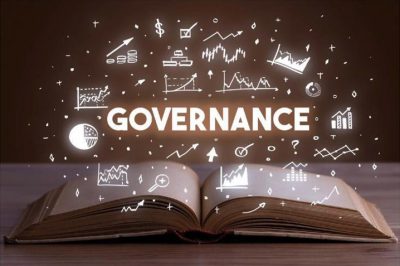One state of agony for Pakistan is the crisis of poor governance. Since its independence, it has started robbing the country of internal stability, and there is no doubt that good governance can resolve and settle all its colossal problems. However, the government has yet to achieve its outcomes (political, social, economic) due to inducing crises of good governance.
Governance issues have been part of Pakistan’s debate for a long. Due to military intervention and ineffective or corrupt leadership, delays in constitutions lead to poor governance in the country. The predicament of governance in Pakistan is due to less or no accountability, weak rule of law, absence of transparency, and non-participation of citizens.
The seven pillars of good governance mentioned by the United Nations are accountability, rule of law, inclusiveness, transparency, integrity, participation, and consensus-oriented. And if there would be good governance, there would be good democracy. Another feature of good governance is that the government teams up with it. But it is not possible if you have a corrupted leader. Poor or inclusive decision-making and poor efficiency of some institutions push up the governance crises.
One must have good governance in a country to integrate into the international economy. Also, if one country has no specific rules of law, there would be fewer or lower-rate donors to that country. We can have a look at the whole of South Asia. Many big companies and investors are moving to India but not to Pakistan, and the reason is the same: poor governance.
If there were bad governance, there would be economic instability, which would automatically lead to economic downfall, which Pakistan is facing now. Not only is the economy affected, but poor governance can lead Pakistan to more and more chaos; it can’t drive its people to come out of poverty, and it can lead the whole society to transform, causing social degradation would be started, and eventually leading the people to anti-state elements.
Also Read: Xi Jinping Congratulates Shehbaz Sharif on Prime Minister role
Benigno Aquino has rightly remarked on governance as “with poor governance, life will improve for all.” The poor governance structure in Pakistan has given its people a mental dither. As mentioned above, it led some people to create disturbance and anarchy by their anti-state element. Besides this, a negative image has been portrayed not only in the regain but globally. As a result, the worth of a green passport has been lost as Pakistanis are considered a corrupt and unethical nation.
Poor governance has led Pakistan to many losses in public-private partnerships, as some significant sectors were the Pakistan Steel mills and Pakistan International Airlines. But these have become the largest lost units, costing 17 billion rupees annually. Some biased accountabilities may lead to further downfall as they didn’t curb irregularities in the institutional processes. There is no meritocracy, as the youth cannot find equitable opportunities in all sectors.
The employment rate is decreasing daily as seats are not given to the deserving but to the relatives of the leaders and the bureaucrats. Also, there is less focus on capacity building and training programs for civil servants to strengthen their capabilities to respond to humanitarian crises.
In a nutshell, good governance can pave the way toward building morale and nation, but currently, poor governance in Pakistan can be seen. However, good governance can replace poor governance if there is no bias, meritocracy, skillful leadership, the proper rule of law, and strong accountability. And to get out of the poor governance, there is a need to focus on the elements like social transformation. Likewise, there would be an uplift if good coordination between the public and private sectors existed. Growth, stability, and development are inevitable unless the governance issues are not curbed.
Author Muskan Mustasam graduated in International Relations from the University of Central Punjab (UCP)
** The opinions expressed in this article are solely those of the author and do not reflect the views or position of World Affairs Insider. The organization neither endorses nor takes responsibility for the content of this article and its accuracy.








